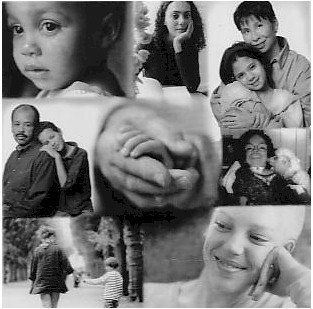Palliative care is an integral part of medicine. However, it is commonly misinterpreted by the public which includes the patients and their families. Unfortunately medical students and even doctors are also misled by the misconception about palliative care which further deteriorates the scenario.  Most people come to know the term palliative care as merely a form of pain management given to those with an incurable disease. While this is true, palliative care is so much more than that. It is defined as treatment to alleviate symptoms without curing the disease. And the symptoms encompass the patients’ physical, psychological and psychosocial well-being. It gives the patients an improved quality of life so they can spend whatever time they have left with their loved ones free of distress and discomfort.

Top Five Myths About Palliative Care
There have been many myths surrounding the term palliative care and misconceptions about being admitted to the palliative ward:
Myth #1 : It is a place for people to live their final days and die.
Correction : Doctors making the referrals of terminally-ill patients to the palliative care ward often fail to explain to the patients what will happen to them there. Patients can be distressed by the lack of information provided to them, especially if they already have their own negative perception of palliative care. This is probably why people tend to misunderstand this term so often.

Myth #2 : It is catered only for the old and dying patients with end-stage diseases without further treatment.
Correction : The specialty of palliative care is given to patients with a progressive incurable illness to allow them to have the most out of their time left to spend with families and friends. It is not limited by age or illness. Apart from that, patients in the palliative care ward can still receive treatment for their illness. Being warded does not necessarily mean cessation of treatment, especially if the treatment can improve the quality of life for the patient. For instance, patients with chronic non-malignant diseases can be easily undermined if palliative care was non-existent.
Myth #3 : Patients will be sedated until their end of life.
Correction : Certain individuals might have had bad experience dealing with a dying loved one. Especially when there is so much pain involved that sedation is the only way to properly manage the pain. And because of that, there is an assumption that all patients under the care of the palliative ward are merely treated with painkillers. That is not true. Each patient is different in every way. Every management and treatment must be tailored to meet the individual needs.
Myth #4 : Patients will not be able to be discharged once admitted to the palliative ward.
Correction : Palliative care is not just limited to the hospital. It is very important for the patient to understand this as it might cause them to deter treatment. Many patients prefer to remain at home surrounded by loved ones as they are approaching the end of their life, which is not unreasonable. Even warded patients will be discharged once their symptoms are well under controlled. But they will still require symptom control every now and then. In view of that, referrals should be made to hospitals that have a community specialist palliative care team who would provide them with continuity of treatment at home. There will be regular home visits and phone calls to ensure that the patient is well managed at home. With knowledge of the existence of such services patients would be more receptive of treatment. Such services are available to them 24 hours a day 7 days a week.
Myth #5 : Palliative care is all about the process of dying, alone.
Correction : Palliative care is not limited to the patients receiving it, but also extends to their families. It is important that their wellbeing is looked after as well. Taking care of a dying loved one can be very tiring and detrimental to one’s health, in terms of physical and emotional. With that being said, bereavement counseling, pastoral care and support groups are offered to families to help them through this difficult time. They are an invaluable part of the palliative care team that specializes in dealing with difficult issues with aims to aid families to come to terms with the condition of the patient.
The National Institute for Health and Clinical Excellence (NICE) of the United Kingdom accentuates that aside from providing medical responsibility, the role of palliative care is also to provide emotional, mental and spiritual  support to not only the patients but also to their families. This specialty requires a combination of skills between various medical disciplines which ensure optimal symptom control and continuous treatment plan for patients who are in need of such care. Hopefully, the public can perceive the word “palliative†with a more open mind and open heart.

